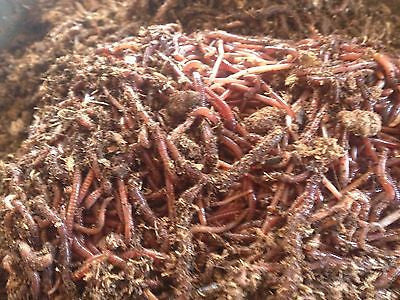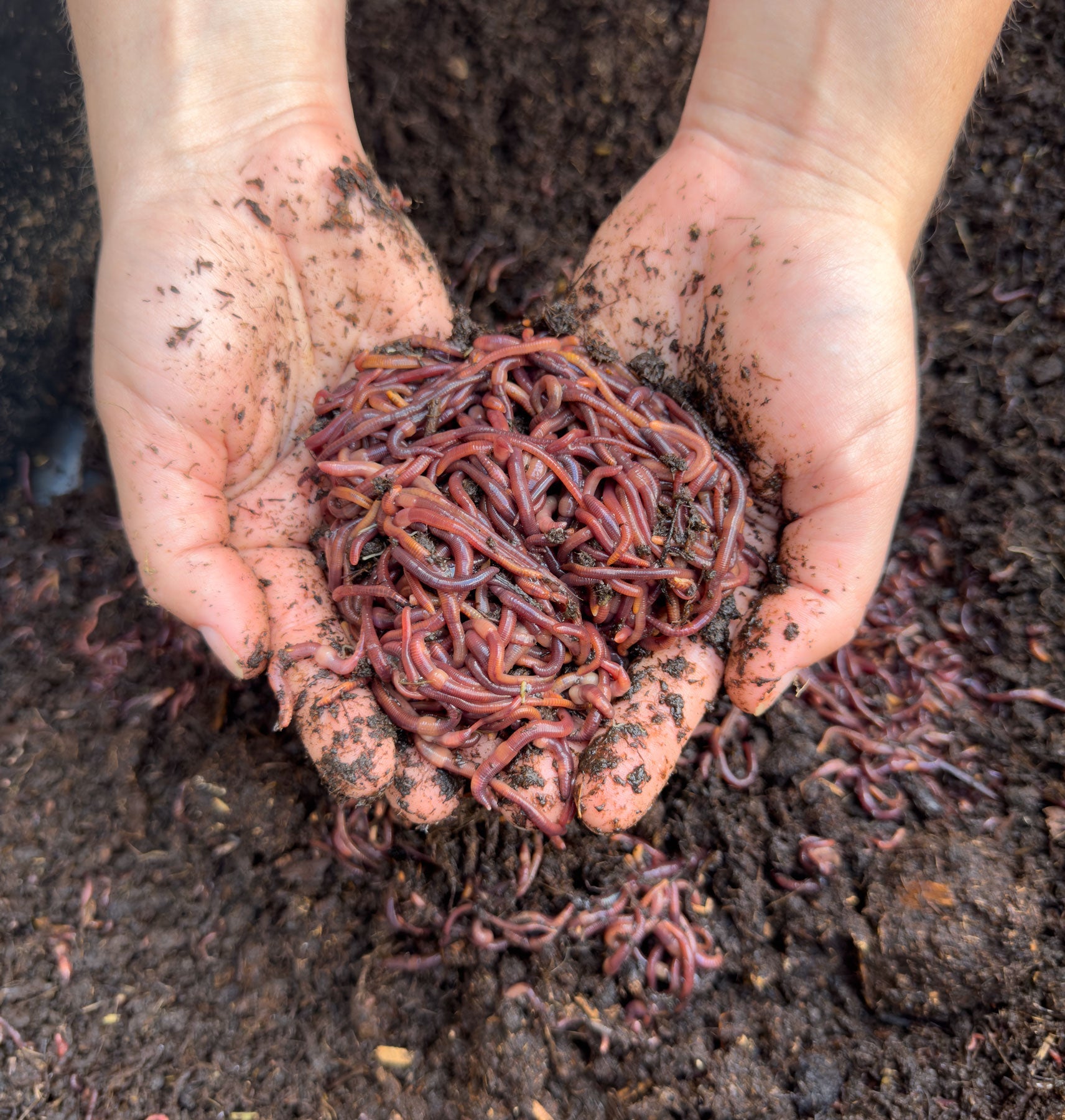Red worms: How to set up a worm farm
Why Red Wigglers Are Necessary for Organic Farming
Red wigglers play a pivotal function in natural farming, mainly via their unique capacity to disintegrate organic materials and enhance dirt health and wellness. Their task not just enriches the soil with important nutrients yet likewise promotes a successful environment crucial for lasting agriculture. Moreover, the physical procedures they take part in, such as aeration and wetness retention, contribute considerably to enhanced plant yields. Nonetheless, the degree of their effect on agricultural practices and soil biology elevates intriguing questions concerning the future of natural farming. What ramifications might this have for farming methods?
Function of Red Wigglers in Soil Wellness

Furthermore, red wigglers improve soil framework by producing networks as they burrow. These networks improve aeration and water infiltration, advertising a much healthier origin setting. Their activity also aids in maintaining ideal dampness degrees, which is essential for healthy and balanced plant development.

Benefits of Worm Spreadings
Worm spreadings, the nutrient-rich excrement produced by red wigglers, work as an effective modification for natural farming. These castings are brimming with vital nutrients such as nitrogen, phosphorus, and potassium, which are crucial for plant development. Unlike artificial plant foods, worm spreadings launch nutrients gradually, giving a steady supply over time and lowering the danger of nutrient leaching and runoff.
Additionally, worm spreadings enhance dirt framework and aeration, promoting healthier origin systems. Their high organic matter material boosts dampness retention, making it possible for plants to better stand up to drought problems. In addition, worm castings consist of helpful microorganisms that support plant wellness by reducing virus and improving vitamins and mineral uptake.
The application of worm spreadings can bring about raised plant returns and boosted high quality of fruit and vegetables, making them an invaluable resource for natural farmers. Their usage additionally aligns with sustainable farming techniques, adding to dirt fertility without the negative ecological influences associated with chemical fertilizers. In general, the incorporation of worm spreadings into agricultural practices promotes a much more durable and efficient ecosystem, emphasizing the significance of red wigglers in natural farming systems.

Enhancing Nutrient Cycling
(red wiggler compost bin)Nutrition cycling is an essential procedure in organic farming, and the assimilation of red wigglers plays an essential role in improving this cycle. As red wigglers eat rotting organic matter, they secrete nutrient-rich spreadings, which are teeming with valuable microbes.
Furthermore, red wigglers assist to increase the mineralization of nutrients, transforming them from inert kinds right into bioavailable types that plants can take in. This procedure is important for keeping soil fertility and advertising healthy plant growth. The presence of red wigglers likewise encourages a diverse dirt environment, fostering a balance of nutrients that supports numerous plant species.
Improving Dirt Framework
The improvement of soil structure is essential for fostering a healthy and balanced agricultural community, and the activity of red wigglers dramatically adds to this enhancement. These earthworms play an important role in aerating the soil and developing a network of networks that help with water infiltration and origin penetration. As they delve with the dirt, red wigglers break up compressed layers, permitting far better oxygen exchange and advertising microbial task.
Additionally, the raw material created from their waste, called vermicast, enhances dirt aggregation. This process produces stable globs of soil bits, enhancing soil porosity and decreasing erosion (red wigglers). The presence of red wigglers likewise urges the growth of helpful fungal networks, which are essential for nutrient uptake by plants
Promoting Sustainable Practices
Incorporating red wigglers into organic farming methods not just improves dirt health yet likewise advertises sustainable agricultural methods. These earthworms play an essential function in nutrition biking, transforming natural waste right into beneficial garden compost that enhances the soil. By using red wigglers, farmers can properly reduce dependence on synthetic fertilizers, consequently reducing chemical drainage and its harmful effects on ecological communities.
Moreover, the consolidation of red wigglers motivates try these out the technique of reusing organic products, such as cooking area scraps and ranch waste. This waste decrease strategy not only lowers disposal costs but likewise promotes a closed-loop system where nutrients are continually gone back to the soil (red wigglers). Such techniques are essential in reducing climate adjustment, as they improve carbon sequestration and decrease greenhouse gas exhausts
Moreover, red wigglers improve water retention in the soil, which is critical in times of drought. Their burrowing tasks produce channels that allow water to permeate deeper into the ground, thus promoting efficient water use. Eventually, incorporating red wigglers right into natural farming not just supports biodiversity yet also lines up with the principles of sustainable farming, providing a holistic method to food manufacturing.
Verdict
In final thought, red wigglers play an important duty in organic farming by considerably boosting soil wellness and fertility. Thus, the integration of red wigglers into agricultural techniques is vital for advertising sustainability and boosting general dirt top quality.